Personal milestones, turning points, and stages of my journey.
Looking back: The evolution of my website – and my own digital journey.
1999 – First Digital Traces
v1.3 – My first stay in the U.S.A.
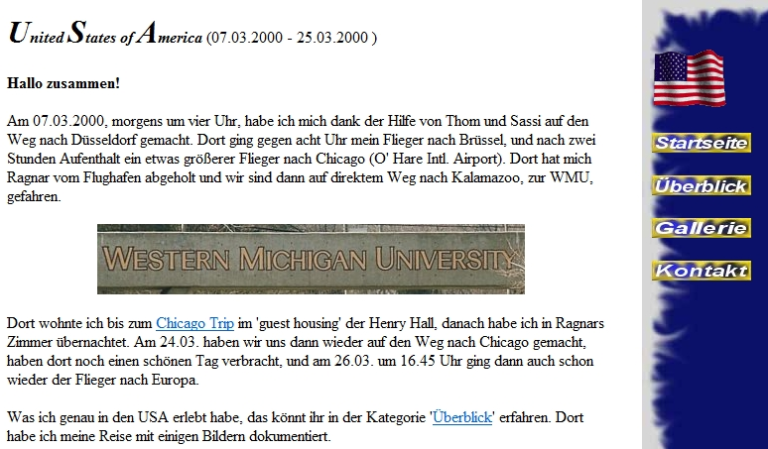
Why:
It was my first time in the U.S., and I wanted to share my impressions – not with the world, but with family and friends.
How:
Pure HTML. No CMS, no design system – just Notepad, curiosity, and a simple upload.
Lessons Learned:
Digital storytelling doesn’t start with technology, but with the desire to make something visible that moves you.
2000 – Exploring the East Coast
v1.4 – Documenting our trip
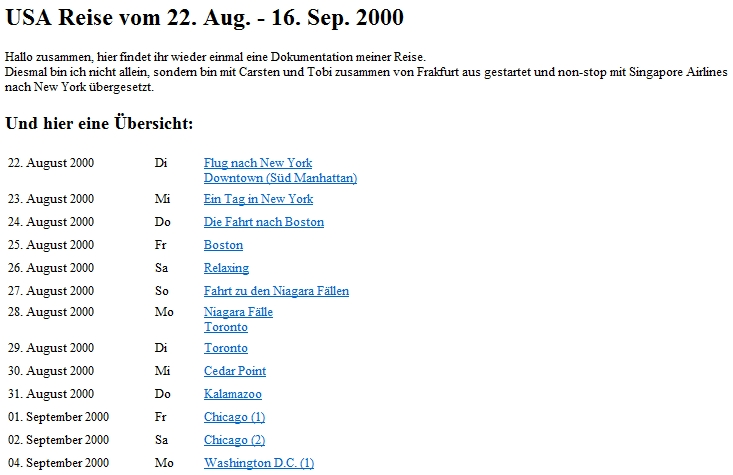
Why:
Travel meant discovery, documentation, and sharing. Back then, the web was the perfect logbook.
How:
Again: pure HTML – with daily reports, photos, and maps. Technically simple, personally rich.
Lessons Learned:
People follow stories, not structures. Good content doesn’t need much tech – it needs attitude.
2001 – Living in the U.S.
v1.5 – Making everyday life visible
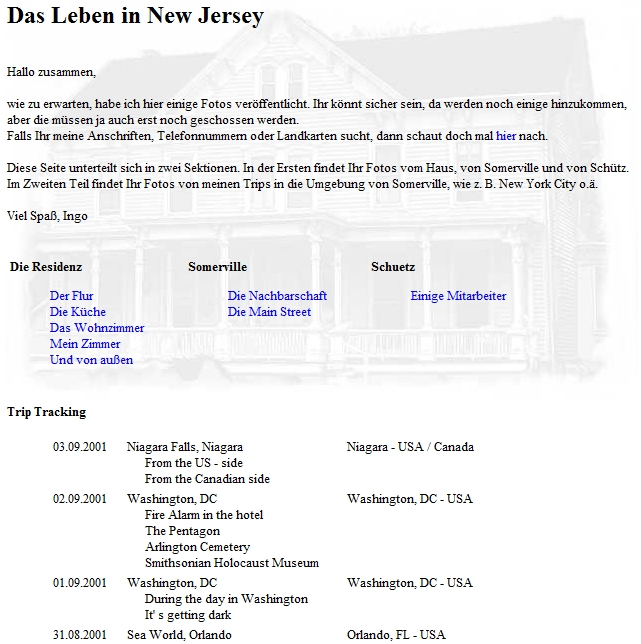
Why:
It was my first long-term stay abroad. I didn’t just want to document experiences, but convey a feeling.
How:
With more structure: CSS was added, and simple JavaScript experiments too. It became a personal homepage.
Lessons Learned:
Websites aren’t static. They grow with what we experience – and what we want to express.
2001–2002 – Blogging before it was a word
v2.0 – Online blog during my internship
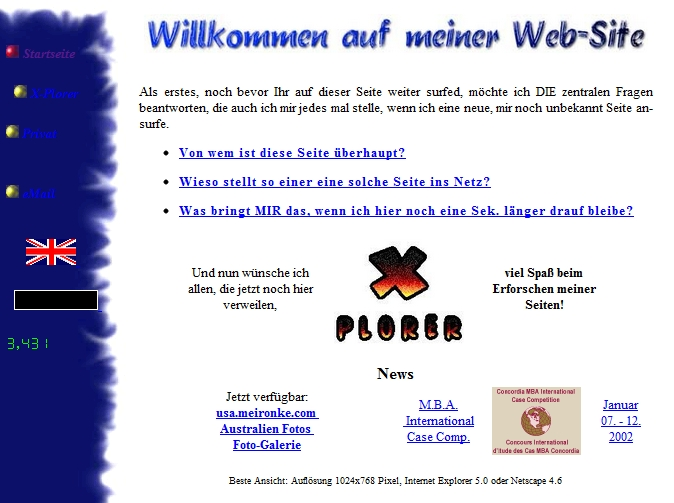
Why:
My U.S. internship brought many experiences – professional, cultural, personal. I wanted more than a diary: a dialogue.
How:
With HTML, CSS, JavaScript, and for the first time Perl – my first 'real' blog (even if I didn’t know the term yet).
Lessons Learned:
Technology is a tool. Relevance arises when content doesn’t just transmit – but connects.
2008–2009 – Web 2.0 & Aggregation
v3.0 – RSS everywhere
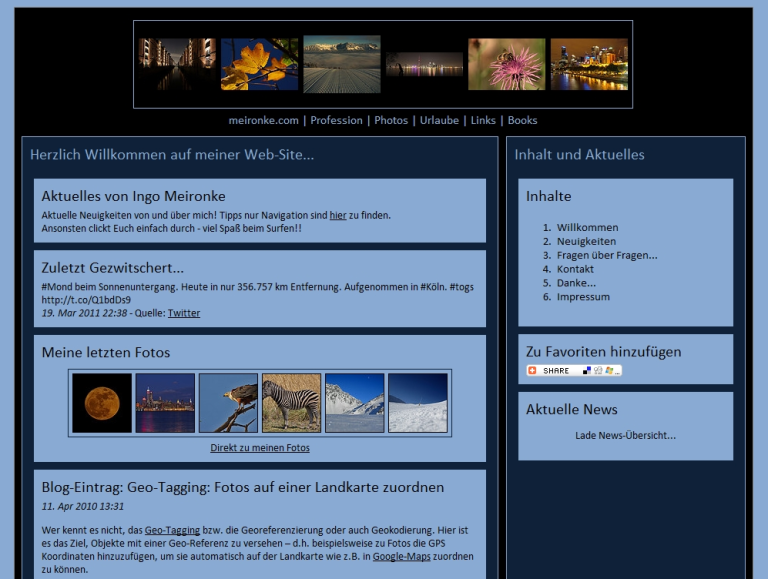
Why:
The web became more social. Blogs, feeds, comments. I didn’t just want to write, but also collect and connect.
How:
I aggregated content via RSS, linked sites, and created a content network.
Lessons Learned:
Online relevance is not only about what you say – but what you absorb and share.
2011 – Relaunch with WordPress
v4.0 – From tinkering to structure
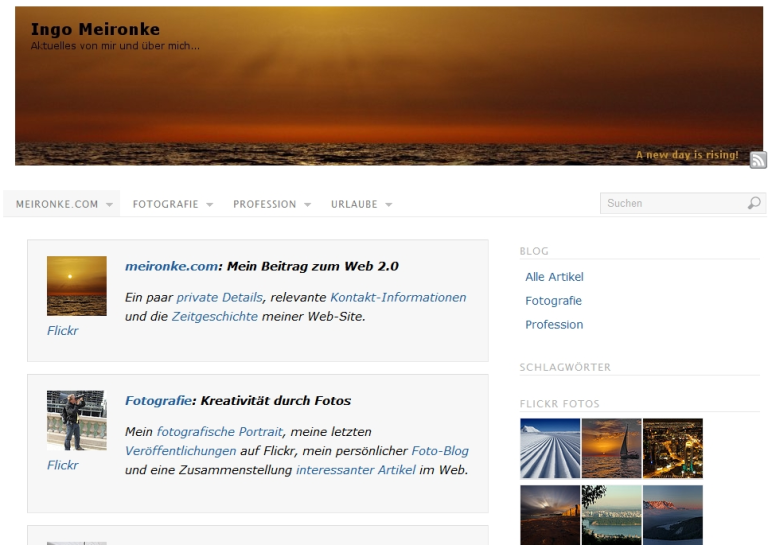
Why:
I needed more structure – professionally and content-wise. WordPress offered a flexible foundation for both.
How:
With WordPress 3.0, the PageLines theme, RSS feeds – finally a CMS and responsive design.
Lessons Learned:
Structure enables scaling. If you want to organize a lot of content, you need technical clarity.
2012 – Professionalization & Internationalization
v4.1 – Business focus, new language
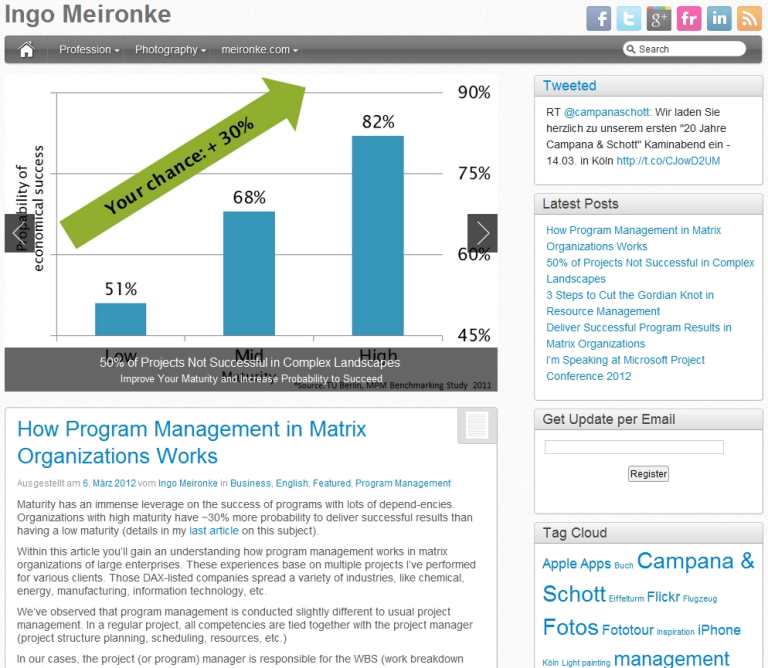
Why:
My role evolved – more international, advisory, strategic. The website had to reflect that.
How:
I switched to the iFeature theme, changed the content to English, and sharpened my business focus.
Lessons Learned:
Language is positioning. If you think internationally, you must still remain locally understandable.
2019 – Fresh design, professional content
v4.2 – Making consulting visible
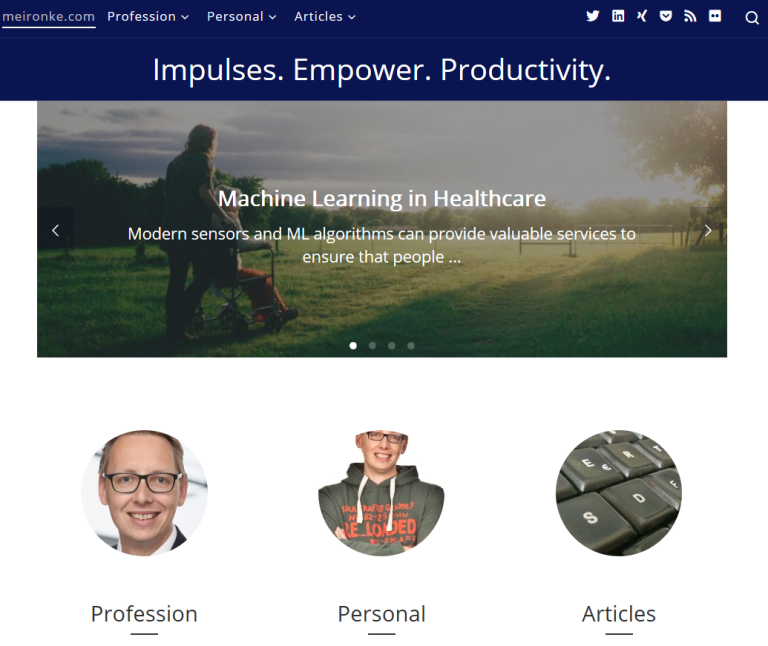
Why:
I wanted to communicate my topics – transformation, technology, leadership – more clearly and accessibly.
How:
With the Customizr theme, modern design, and better editorial structure. RSS remained, the CMS became more stable.
Lessons Learned:
Design isn’t decoration – it’s expression. If you want to appear professional, you need consistency.
2025 – New start with Astro
v5.0 – Less tech, more impact
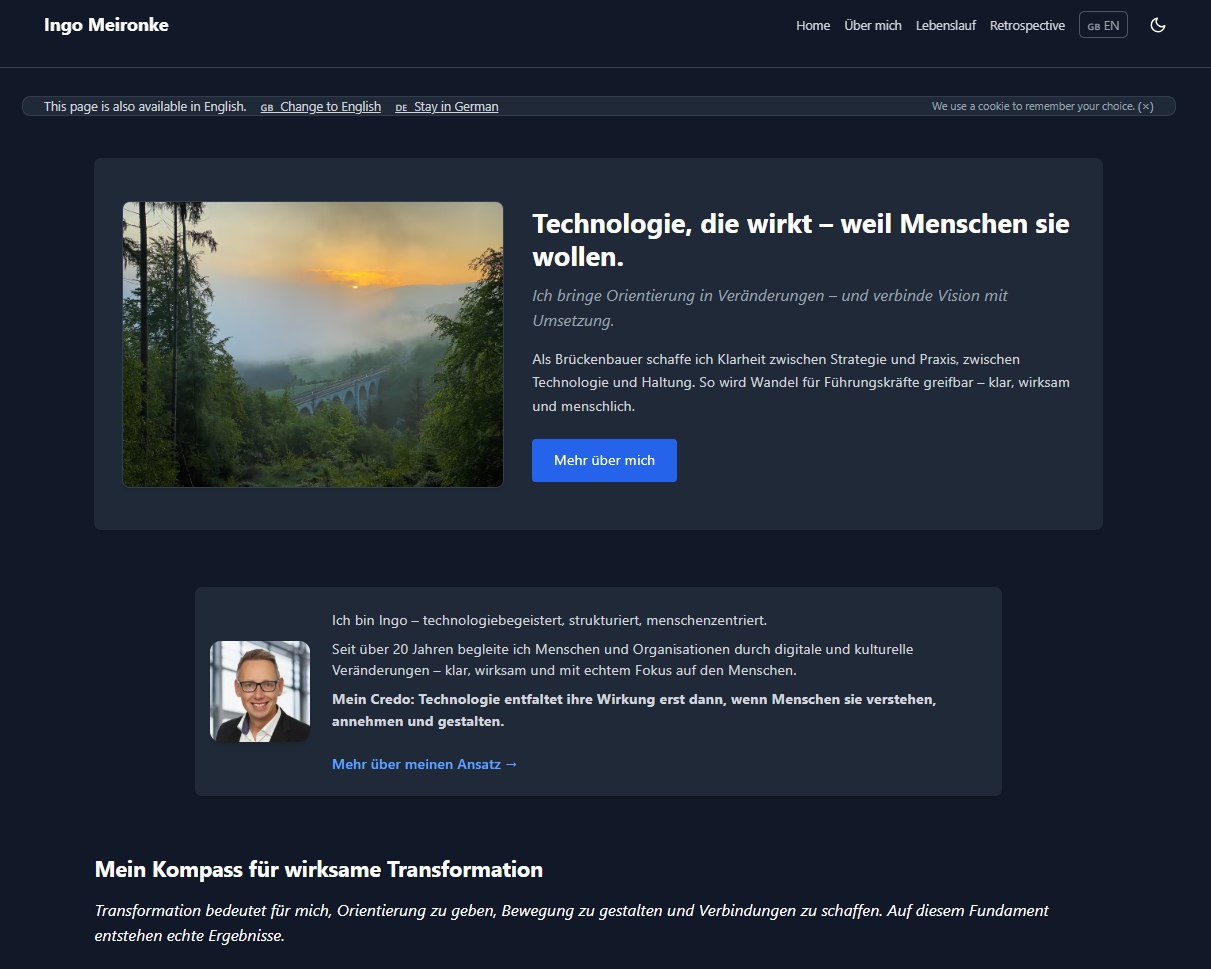
Why:
WordPress became sluggish: GDPR hassles, cookie banners, plugin maintenance. Cloud costs exploded – tripling in some cases. I wanted to break out of the system jungle and return to clarity.
How:
With Astro: a static, lightning-fast, low-maintenance site. No CMS, no cloud dependency, just structured code, Markdown, and focus.
Lessons Learned:
Simplicity isn’t a weakness – it’s a choice. Technology should never get in the way, but enable. Simplify to amplify.